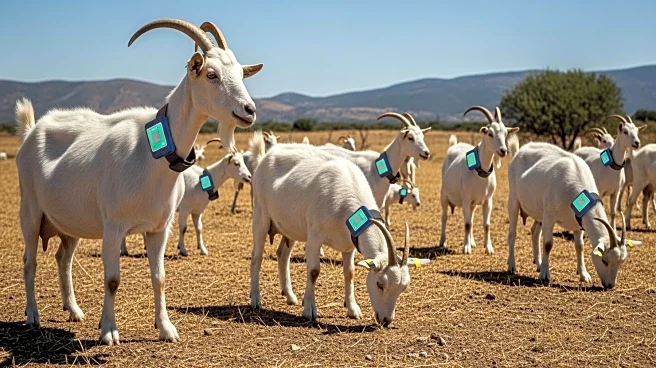What is the story about?
What's Happening?
The Department of Agriculture in Cyprus is piloting a selective grazing program using GPS-tracked goats to mitigate wildfire risks exacerbated by ongoing drought conditions. The initiative aims to prevent rural abandonment and support local communities affected by the recent wildfire in Limassol. The program involves analyzing grazing capacity and tracking animal movements to reduce combustible vegetation. This effort is part of broader measures under the EU's Common Agricultural Policy to address climate change impacts and support agricultural sustainability.
Why It's Important?
The drought conditions in Cyprus highlight the increasing challenges faced by rural communities globally, including in the U.S., where similar environmental pressures threaten agricultural productivity and rural livelihoods. The innovative use of technology, such as GPS tracking, offers a model for other regions to enhance wildfire prevention and land management. This approach could influence U.S. agricultural policies and practices, promoting resilience against climate-related disasters and supporting sustainable rural development.
What's Next?
The pilot program will continue until the end of 2026, with plans to expand to additional areas. The outcomes will inform the inclusion of the program in Cyprus's Strategic CAP Plan beyond 2027. The Department of Agriculture is also implementing emergency measures to support affected farmers and livestock breeders, including financial aid and infrastructure restoration. These efforts may serve as a blueprint for similar initiatives in the U.S. to address environmental challenges and support rural communities.
Beyond the Headlines
The use of GPS technology in agriculture represents a shift towards more data-driven and precise land management practices. This could lead to broader adoption of smart farming techniques, enhancing efficiency and sustainability. Additionally, the focus on preventing rural abandonment underscores the importance of maintaining vibrant rural communities, which are essential for cultural heritage and biodiversity conservation.


















